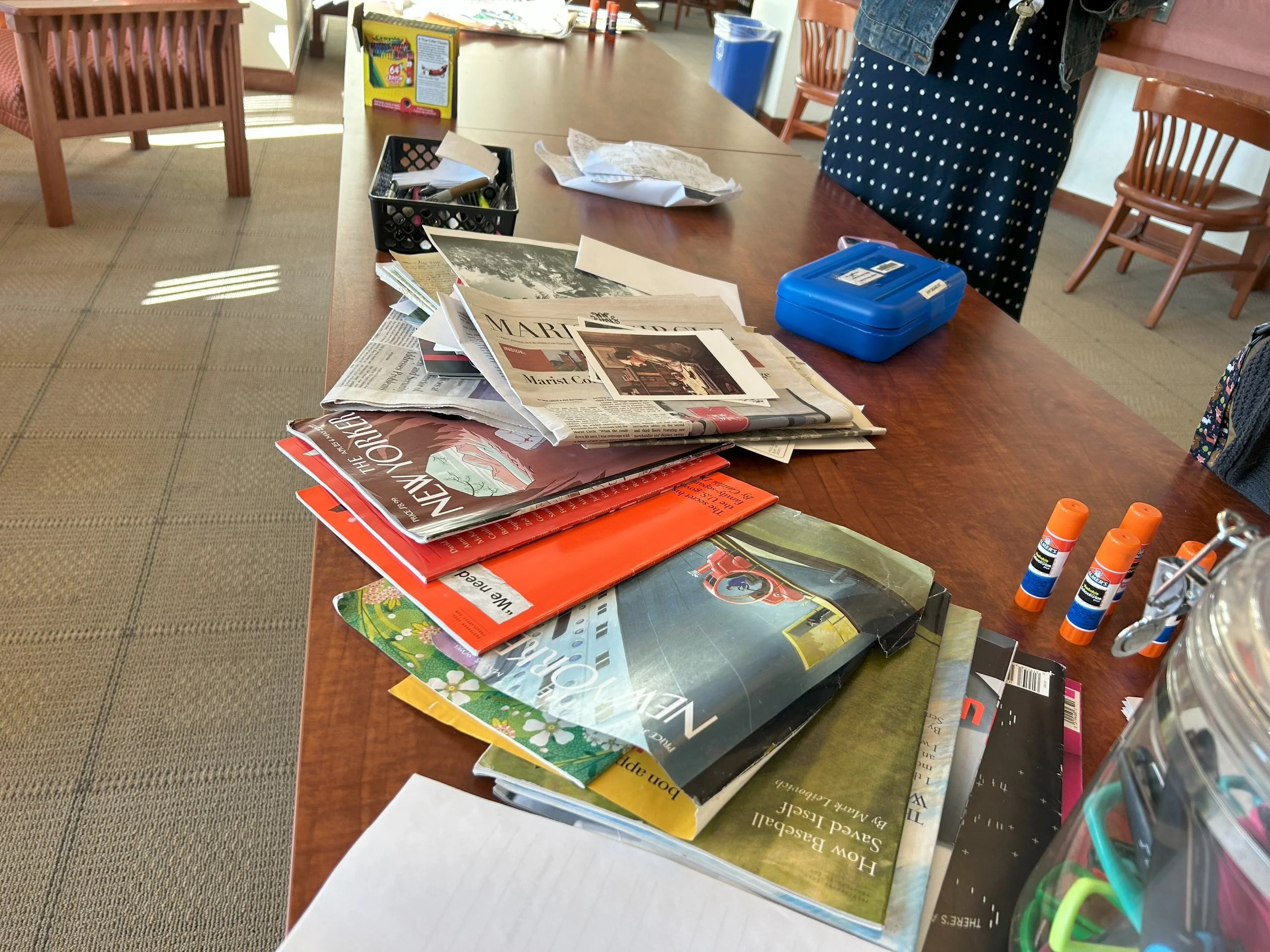Zines: Activism in Six Panels
The Zine table with materials available for student use. Photo by Sarah Gurskis '26.
Scissors were snipping on Oct. 5 during the first library zine event in the Gartland Reading Room. The zines, self-published stories that promote independent expression, revolved around Banned Book Week. Prompts were suggested to students, such as: “What does freedom of speech mean to you?” “What’s a time you felt censored?” and “Write about a book that you love that’s been banned.”
The event was hosted by Evening Services and Operations Librarian Margaret Roach and Public and Research Services Librarian Gill Friedlander. The two set up a long table with newspapers, magazines and snippets of old books to collage within a folded zine. Writing utensils and scissors were also provided to the attending students.
“This event is a little bit of a soft start to Banned Books Week, where we are making zines that are all focused on freedom of speech,” Roach said. The freedom zines give to creators are limitless, and are guaranteed to remain uncensored. “You can just write down what you want to say and get it out to the world.”
Students can create and submit zines for publication to be displayed within the library. “We also allow students to donate zines directly to our collections,” Friedlander said. “Unlike an article or something, there is a space right in the library for them.”
The small event sat students down to create anything they wanted within six small pages. One student took it upon himself to think about the consequences of restricting speech and what the future may look like because of the restrictions.
Conversations about contentious topics are a reason why Friedlander finds this medium important: “The ability to have conversations with students about things they can’t always have conversations about, like gatekeeping and privilege.”
“I think they’re really important right now when making art is really hard, and making art for money, in particular, feels like a goal that you should have as an artist, even though it’s not, really,” Roach added.
The conversation about zines at Marist University does not stop at the library. Roach and Friedlander are educating both students and faculty alike on this mode of education. Professors are beginning to adopt zines into their curricula, and both librarians go around campus to present and garner attention to zines.
Future zine events are also being planned in collaboration with student organizations. Their collaboration with Red Fox Writing will occur on Oct. 30 with a spooky story theme and a menstrual theme with C.R.A.M.P.
Published zines can be found around the library and across campus, each one unique to its author.
“We like talking about them a lot,” Roach said. “It’s honestly one of my favorite parts of the job.”
